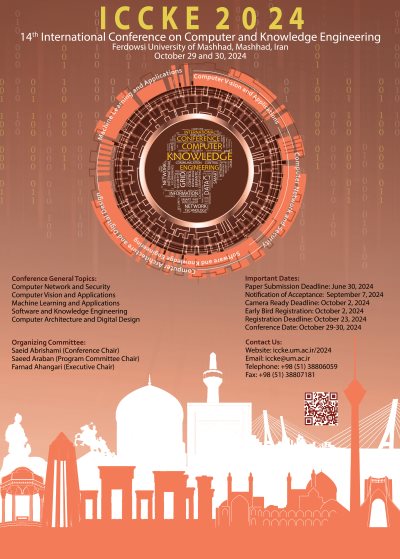0% Complete

Authors :
Keywords :
Abstract :
List of archived papers
Amir Meydani - Ali Ramezani - Alireza Meidani
Fatemeh Deldar - Mahdi Abadi - Mohammad Ebrahimifard
Reza Latifi - Mahmoud Naghibzadeh
Mohammad Nikbakht - Mehdi Teimouri
SAYED PEDRAM HAERI BOROUJENI - ELNAZ PASHAEI
Amir reza Kalantarnezhad - Javad Hamidzadeh
Abolfazl Dibaji - Sadegh Sulaimany
Shayan Majidifar - Fatemeh Nasiri - Mohsen Hooshmand
Ali Abedzadeh - Reza Ramezani - Afsaneh Fatemi
Ervin Gubin Moung - Hani Yasmin Binti Murnizam - Maisarah Mohd Sufian - Valentino Liaw - Ali Farzamnia - Lorita Angeline




